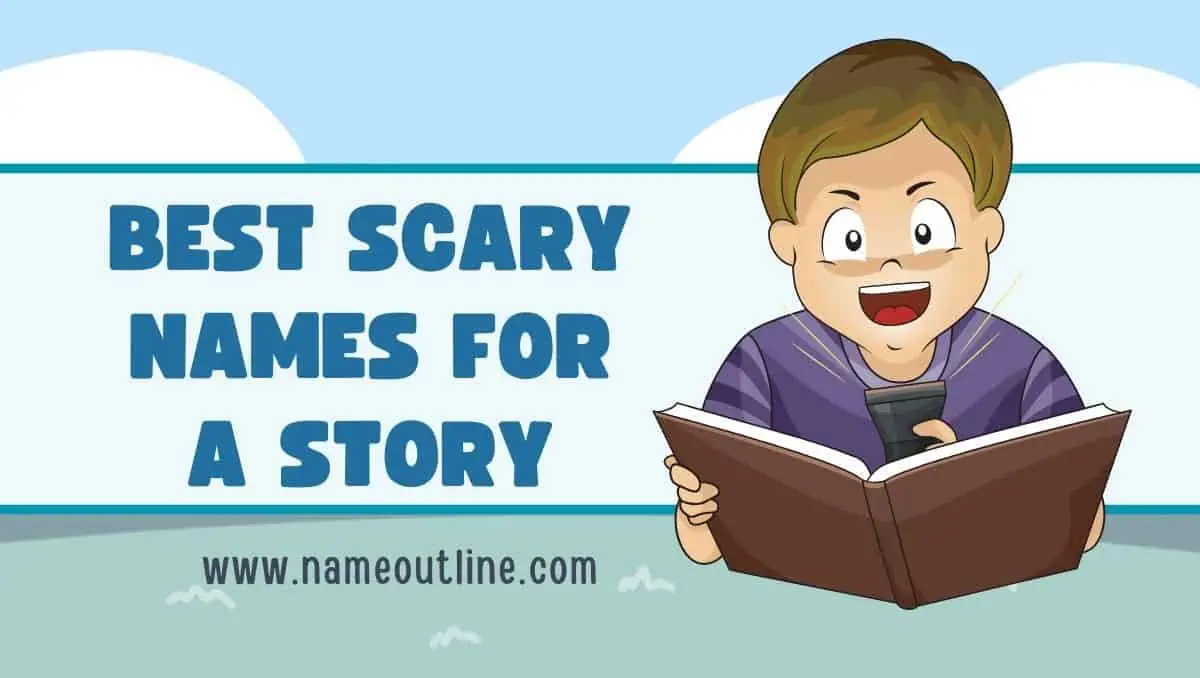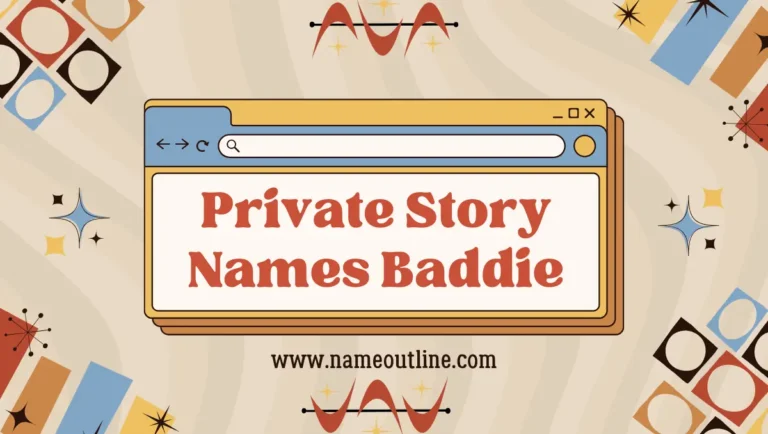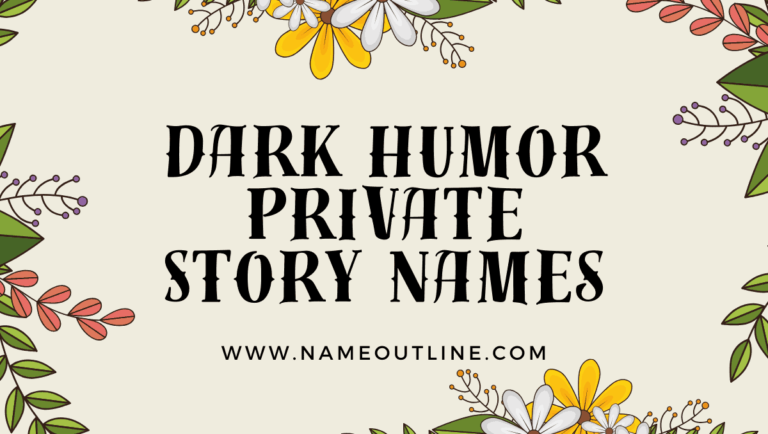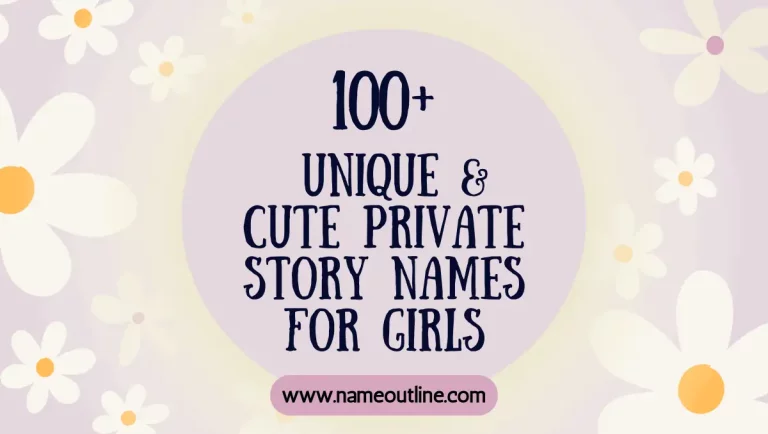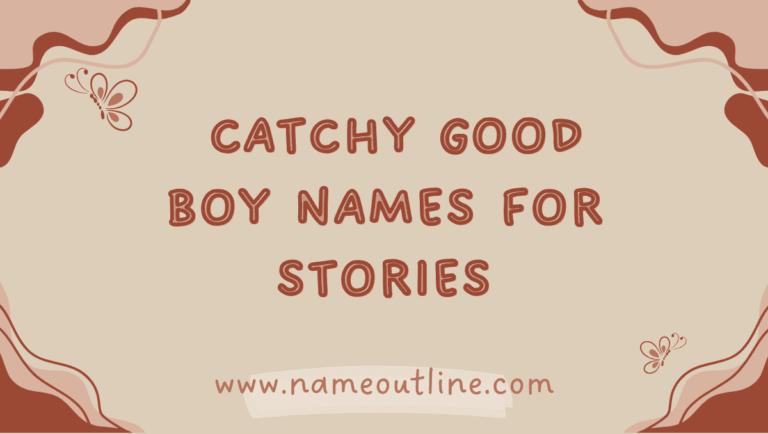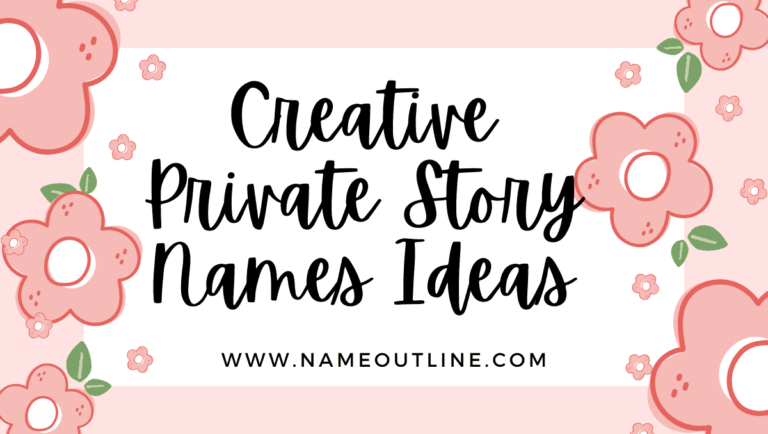Scary Names for a Story
In the dimly lit room, shadows danced eerily as the storyteller began weaving a chilling tale. The atmosphere became charged with anticipation as the audience braced themselves for the unveiling of spine-chilling narratives.
The storyteller skillfully chose from a plethora of unsettling and ominous names, creating an unsettling ambiance that echoed with the whispered repetition of Scary Names for a Story, as if the very words held a dark incantation over the room.
Each name invoked a sense of dread, leaving an indelible mark on the listeners’ minds, ensuring that the haunting echoes of those names lingered long after the story’s conclusion.
Gather your courage, dear reader, for what follows is a journey into the macabre, guided by the spine-chilling resonance of names that echo through the corridors of dread.
Best Scary Names for a Story

- The Abyss Below
- Whispers from Below
- Nightmares Unleashed
- The Silent Cellar
- Midnight Whispers
- The Unseen Terrors
- The Desolate Dungeon
- Phantom Frights
- Shadows of Despair
- The Dreadful Dungeon
- The Forsaken Cellar
- Haunting Heights
- Eerie Echoes
- The Sinister Sanctuary
- Beware the Shadows
- The Unearthly Asylum
- Twisted Terrors
- The Enchanted Abyss
- Midnight Enigma
- The Cursed Catacombs
- Eclipsed Despair
- Whispers of the Forgotten
- Shadows Within
- Crimson Nightmares
- The Haunting Silence
- Spectral Vengeance
- The Midnight Curse
- Terror’s Embrace
- Infernal Lullaby
- Dreadful Reckoning
- Beneath the Veil
- Phantom’s Respite
- Cursed Reflections
- The Abyssal Pact
- Harbinger of Shadows
- Lurking Malevolence
- Forgotten Fears
- Screams in the Echo
- The Unseen Presence
- Whispers in the Abyss
Creating a Horror Story Title

Creating a compelling horror story title involves capturing the essence of fear, mystery, and intrigue. Here are some tips to help you craft an effective horror story title:
- Evoke Fear and Suspense:
- Use words that evoke a sense of fear, dread, or suspense. Think about what elements in your story are the most terrifying and try to incorporate them into the title.
- Set the Atmosphere:
- Consider the setting of your horror story. Titles that allude to creepy locations, ominous surroundings, or eerie environments can set the tone for your narrative.
- Utilize Descriptive Language:
- Choose words that paint a vivid picture of the frightening elements in your story. Adjectives and descriptive language can help create a sense of unease.
- Incorporate Mystery:
- Leave some elements of your story shrouded in mystery. A title that hints at the unknown or leaves questions unanswered can pique readers’ curiosity.
- Play with Alliteration:
- Alliteration can make a title memorable and add a touch of rhythm. Experiment with words that start with the same letter or sound for a catchy effect.
- Focus on the Supernatural:
- If your horror story involves supernatural elements, consider incorporating them into the title. This can include ghosts, demons, curses, or other supernatural phenomena.
- Consider Irony:
- Sometimes, a title that hints at something normal or benign can create an ironic twist when the horror is revealed. This can add an extra layer of surprise.
- Keep it Concise:
- A good horror title is often concise and to the point. Avoid overly long titles, as shorter ones can be more impactful and memorable.
- Brainstorm and Iterate:
- Generate a list of potential titles, and don’t be afraid to iterate. Experiment with different combinations of words until you find one that captures the essence of your story.
- Test with Others:
- Get feedback from friends, family, or writing peers. They might provide valuable insights and help you choose a title that resonates with a wider audience.
Elements of a Horror Story

Creating a compelling horror story involves incorporating various elements to evoke fear, suspense, and unease. Here are key elements commonly found in successful horror stories:
- Atmosphere:
- Establish a chilling atmosphere by describing the setting in detail. Utilize sensory details to immerse the reader in the eerie environment, whether it’s a haunted house, a dark forest, or an abandoned asylum.
- Tension and Suspense:
- Build tension gradually throughout the story. Foreshadowing, pacing, and well-timed reveals can contribute to a sense of anticipation and keep the reader on edge.
- Mystery and Uncertainty:
- Embrace the unknown and leave certain elements of the story shrouded in mystery. Uncertainty can heighten fear and intrigue, encouraging readers to keep turning the pages.
- Relatable Characters:
- Develop characters that readers can relate to and empathize with. Placing relatable individuals in terrifying situations can intensify the emotional impact of the horror.
- Supernatural Elements:
- Incorporate supernatural elements such as ghosts, demons, curses, or other paranormal occurrences. These elements add an otherworldly dimension to the horror and can defy the laws of nature.
- Isolation:
- Isolate characters physically or emotionally to increase their vulnerability. Whether it’s being trapped in a remote location or feeling emotionally alone, isolation amplifies the sense of helplessness.
- Foreshadowing:
- Drop subtle hints and clues early in the story to foreshadow the horrors that will unfold. Foreshadowing creates a sense of inevitability and adds depth to the narrative.
- Unexpected Twists:
- Introduce unexpected twists and turns in the plot to keep the reader guessing. Surprising revelations can disrupt expectations and enhance the shock factor.
- Gore and Violence (if appropriate):
- While not necessary for all horror stories, graphic descriptions of gore or violence can contribute to the visceral impact of the horror. Use these elements judiciously and consider the tone of your narrative.
- Cultural or Psychological Horror:
- Explore cultural or psychological aspects of horror. Cultural horror can draw on folklore and traditions, while psychological horror delves into the fears and anxieties rooted in the human mind.
- Dark Imagery:
- Paint vivid and unsettling images with your words. Use dark and vivid imagery to create lasting impressions and to enhance the readers’ sense of fear.
- Unsettling Soundscapes:
- If applicable, consider incorporating sounds into your narrative. Describe eerie sounds that characters hear, or use the absence of sound to create tension.
- Clever Use of Light and Shadow:
- Manipulate light and shadow to create a sense of foreboding. Dim lighting, flickering candles, and shadows can be used to amplify the eerie atmosphere.
Remember that effective horror often lies in the psychological impact on the audience, so carefully crafting these elements can contribute to a truly spine-chilling narrative.
What are Scary and Creepy Last Names

Creating scary and creepy last names can add an extra layer of spookiness to your characters in a horror story. Here are some suggestions:
- Darkwood
- Gravesend
- Hollowgrave
- Shadowcaster
- Bloodthorne
- Ravenshroud
- Dreadbourne
- Blackthorn
- Moonshade
- Ashenfield
- Grimhurst
- Nightshade
- Corpsewell
- Sinistera
- Deathrattle
- Morbidon
- Cryptkeeper
- Hauntsburg
- Grimlock
- Wraithborne
Scary Names for a Story Character

creating a scary and memorable character name is crucial for setting the tone in a horror story. Here are some suggestions:
- Malevolent Malachi
- Seraphina Blackheart
- Mordecai Shadowbane
- Lucius Nightshade
- Isabella Hexgrave
- Thaddeus Dreadmore
- Bellatrix Morgana
- Ezekiel Bloodmoon
- Lysander Darkthorn
- Seraphim Vortex
- Azrael Grimclaw
- Lilith Shadowdancer
- Malphas Drakon
- Ravenna Wraithwood
- Samael Nocturne
- Desdemona Deathshade
- Oberon Gravesend
- Morgaroth Darkspell
- Valeria Soulreaper
- Lucasta Graveborne
Remember, the effectiveness of a scary name also lies in how well it aligns with the character’s personality, backstory, and the overall theme of your story.
Halloween Names for a Story
- Pumpkin Hollow
- Raven Nightshade
- Jack Spector
- Autumn Hallow
- Hailey Moonlight
- Samhain Blackwood
- Trickster Thornfield
- October Frost
- Wanda Witchinghour
- Graveley Grimm
- Spooky Allister
- Candice Cobweb
- Mystic Moonstone
- Edgar Eerie
- Willow Witchwood
- Halloway Bane
- Ember Shadowcaster
- Blythe Batson
- Gideon Ghostly
- Faye Frightmare
These names are inspired by the autumn season, Halloween traditions, and spooky elements to add a festive touch to your story.
Horror Story Names for Girl
- Morgana Nightshade
- Isabella Darkheart
- Seraphina Bloodmoon
- Ravenna Shadowdancer
- Lilith Ravenclaw
- Belladonna Grimlock
- Valeria Blackthorn
- Esmeralda Tombstone
- Cordelia Wraithwood
- Evangeline Morbidon
- Thalia Ghostly
- Ophelia Dreadmore
- Persephone Gravebane
- Lucasta Ebonmere
- Desdemona Moonstone
- Tabitha Baneberry
- Selene Cryptborn
- Bellatrix Cursedew
- Sybella Hauntwell
- Aradia Darkspell
Horror Story Names for Boy
- Alex Cross
- Ethan Blackwood
- Harrison Thorne
- Nolan Van Helsing
- Jackson Harrow
- Cole Winchester
- Blake Macabre
- Griffin Darrow
- Cooper Nightshade
- Sawyer Mortem
- Bennett Caine
- Reed Holloway
- Maxwell Grim
- Preston Graves
- Asher Darkling
- Derek Ravenwood
- Wyatt Shadowbane
- Spencer Bloodworth
- Dorian Creed
- Finley Havoc
Famous Horror Male Characters In Novels and Movies
Several famous horror male characters have left a lasting impact in both novels and movies. Here are some legends:
Novels:
- Count Dracula (Dracula by Bram Stoker): The classic vampire antagonist known for his charm and terror.
- Victor Frankenstein (Frankenstein by Mary Shelley): The scientist who creates a monstrous being with disastrous consequences.
- Norman Bates (Psycho by Robert Bloch): The troubled innkeeper with a disturbing relationship with his mother.
- Jack Torrance (The Shining by Stephen King): The writer who descends into madness while staying at the haunted Overlook Hotel.
- Hannibal Lecter (The Silence of the Lambs by Thomas Harris): A brilliant but psychopathic cannibalistic serial killer.
Movies:
- Michael Myers (Halloween series): The masked and seemingly unstoppable killer with a dark past.
- Freddy Krueger (A Nightmare on Elm Street series): The dream-stalking, razor-gloved nightmare creator.
- Jason Voorhees (Friday the 13th series): The iconic hockey-masked killer haunting the Crystal Lake campground.
- Leatherface (The Texas Chainsaw Massacre): The chainsaw-wielding, mask-wearing antagonist.
- Pennywise the Dancing Clown (It by Stephen King): The shape-shifting, child-hunting entity that takes the form of a clown.
- Patrick Bateman (American Psycho by Bret Easton Ellis): A wealthy, psychopathic New York City businessman.
These characters have become cultural icons and have contributed significantly to the horror genre, each bringing a unique brand of fear and terror to their respective stories.
Frequently Asked Questions
How do you title a scary story?
Focus on Atmosphere: Use words that evoke a sense of fear, mystery, or suspense. Consider the setting, time, and tone of your story.
Embrace the Unknown: Incorporate elements of the unknown or supernatural to pique curiosity and instill fear.
Be Enigmatic: Create a title that leaves something to the imagination. A hint of mystery can be more compelling.
Use Strong Adjectives: Utilize powerful adjectives that convey a sense of dread or unease.
What is a scary story called?
The Unseen Menace
Chamber of Whispers
Echoes of Fear
Concealed Nightmares
Hushed Horrors
Mystic Night Terrors
The Ghostly Veil
Behind Closed Curtains
Ephemeral Frights
Shrouded Specters
How do you name a horror book?
Capture the Theme: Reflect the central theme or core fear of your book in the title.
Invoke Emotion: Choose words that evoke strong emotions associated with horror, such as terror, dread, or suspense.
Consider Symbolism: Think about symbols or images within your story that represent fear and weave them into the title.
Check for Originality: Ensure your title is unique and not easily confused with existing works in the horror genre.
What should I name my horror movie?
Highlight the Fear Factor: Your title should instantly convey the horror genre and the fear audiences can expect.
Use Evocative Language: Words that conjure vivid mental images or emotions can make your title memorable.
Consider Wordplay: Clever wordplay or puns can add an interesting layer to your horror movie title.
Think About Impact: A title that sounds impactful when spoken can contribute to the overall marketing and appeal of your movie.
Some names for inspiration are:
Eternal Shadows
Whispers in the Dark
Crimson Veil
The Haunting Hourglass
Spectral Labyrinth
Nightmare’s Embrace
Phantom Limelight
Cursed Reflections
The Abyss Within
Chamber of Despair

